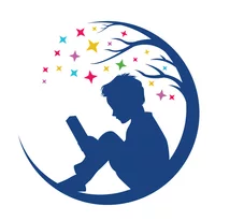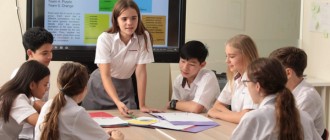For Parents & Educators
Parents
How can parents model and thereby teach their kids healthy coping skills?
Parents are a child s first coping teacher by the way they, as adults, deal with upsets and stress. This website contains information and resources that can be helpful for parents and other adults seeking to learn more about coping in their own lives as well as helping pre-teens in their care to develop these skills. While we all have life experiences that lead to stress, anger or sadness, parents need to know basics about our human coping brain and how it processes emotional experiences. Parents can help their children by discussing their common challenging experiences openly and using coping brain function terms described in this website. Having these conversations leads to more mutual respect between children and their parents. The first rule for parents and educators is to honor children by validating their feelings as well as your own.

If I never learned healthy coping patterns from my parents, how can I now learn to teach these skills to my kids?
As children become pre-teens and enter the early years of adolescence the job of parenting shifts from “fixing” our child s upsets and distress, to helping them learn healthy coping skills that they can use by themselves. Even if adult s own parents never learned or demonstrated healthy coping patterns, you can learn to help yourself and children under your care to use simple concepts that help build emotional resilience. As adults we can learn to use these brain-based tools to more easily recover from everyday emotional upsets and wounds that are an inevitable part of life.
Discussing Coping Challenges at Home
There are many opportunities for using brain and coping terminology when coping challenges arise at home. Parents can use a number of website sections to “explore” with their pre-teen children the words we can learn to use when referring to stressful or upsetting experiences. This includes the three types of coping brain functions — thinking, emotional and reptilian. (See “Coping Brain,” “Coping Challenges“, etc.) as well as “Meet Captain Neo and the Brain Team” feature. The most important part of developing our thinking brain capacity for managing coping responses is naming the kind of hurt we re feeling. Read more about loss, rejection, betrayal and humiliation with your children and practice putting a name to upsetting experiences. There are lots of exercises that can help kids and parents to “get on the same page” by specifically using the coping term that describes why we re upset.
Educators
Eight Important Reasons for Teaching Kids Healthy, Brain-based Coping Skills in School
1. We know from pre-teens” self-assessments that from 35% to 100% of 4th to 6th graders already report having difficulty coping with stress, anger or sadness. The accelerated development of children today means pre-teens may be experiencing stress levels that neuroscientists find lead to problems with learning, attention and memory.
2. There is mounting evidence that student “problem behavior” is often associated with maladaptive coping methods that can lead to the high risk behaviors once believed to be typical in teenage years. Those high risk behavior patterns include using alcohol and drugs to numb emotional pain that overwhelms their coping capabilities. Brain Works fits within a health science unit that pre-teens can use to avoid a coping crisis now, as well as during their emotionally insecure and turbulent teenage years.
3. Pre-teens feel more comfortable learning together since that very process helps to de-stigmatize the embarrassment that often makes their emotional stress and upsets seem worse. School is a safe place to practice brain-based healthy coping skills.
4. School is a familiar place for learning about themselves along with academic subjects.. Also, classroom projects help coping-challenged kids learn from other students. We all know that kids often look to their peers for “guidance” in their own behavior. School is also the source of bullying and related sources of pre-teen emotional pain. What better place to learn how to deal with that distress than in their own school!
5. The data collected to date shows 40% to 80% of pre-teen students who complete a three-hour, brain-based classroom coping skills project say they feel more confident in their ability to get over stressful and hurtful experiences.
6. It is common knowledge that kids learn coping skills (good and poor) from observing how their parents, peers and even teachers cope with difficulty, stress and disappointment. By the time they are pre-teens, kids begin to establish coping patterns that operate the rest of their lives.
7. If we can”t change kids” parents or peers, and others outside their school or class, we can use a few hours of classroom time to help pre-teens learn to use brain-based coping skills in school. These are self-management tools that help build resilience and can help decrease disciplinary problem behavior.
8. Unfortunately, in our culture kids and adults often consider upsets, stress and hurt a sign of weakness. This leads to a denying many of our precious feelings that tell us what we care about and need in our life. It is a relief for pre-teens to learn that stress and hurt feelings occur in everyone”s brains. The thought that “something is wrong with me” is also a brain function misreading that what”s happened is a wound we must hide to protect our self.
Why are coping skills practiced in the classroom an effective way to develop more self-disciplined students?
Read about the Brain Works Project to understand the rationale and purposes of this simple classroom introduction of brain-based coping skills. We know through years of research and student surveys that pre-teens (grades 4,5 and 6) are at an ideal time of life for learning how their brains works and how brain functions affect the way they feel, think and act. Even though pre-teens vary widely in emotional and cognitive development, most are able to understand the basic principles involved in using healthy coping skills and brain self-management tools. Kids want to learn why they are upset, angry or sad. They are relieved to learn that it is their brains reaction to stress that makes them feel the way they do. School classrooms are an effective place for this type of education since, by learning together with their peers, pre-teens feel less stigmatized that “Something must be wrong with me to be so upset.” This project helps kids to learn how to directly face common coping challenges, rather than ignoring or “running away” from them. Many pre-teens and teenages may feel when their feelings are hurt “There s nothing I can do about it.” But this project teaches basic coping skills that help us to become more confident that we can learn to understand and deal with the reasons that our feelings hurt.
How can we fit Brain Works and Coping Skills into the school curriculum?
This project can be included under several areas of academic learning. It has been used as part of a school “Self-Discipline” project to reduce problem behavior, truancy and the excessive need for adult-imposed discipline. Brain Works is also a natural subject for classroom discussions in science, health and human biology. It may also be offered as part of Life Skills units for both upper elementary and early middle school students.
Why is the classroom project focused on developing coping skills primarily for pre-teens?
Recent neuroscience research shows that the human brain is nearly fully developed by age 11 or 12. We also know through actual Brain Works classroom projects that students in grades 4, 5 and 6 are able to understand basic brain function and coping skills concepts, because they are eager to learn more about themselves. Pre-teens are naturally curious about how their brain works, what causes their upsets, and how they can learn to better manage their responses to stress. In addition to these reasons, the most important rationale for introducing coping skills to pre-teens is this: Once in their teenage years, students who have not learned these skills will be among those most likely to engage in high risk behavior. It is tragic for out of control kids to not know their behavior may be prompted by the stress and upsets they never learned to control when they were pre-teens.






